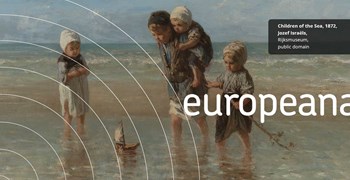Confessions of the last zournas-player in northern Greece
This blog post was first released on the Europeana Sounds website.
During the field-research carried out in the prefecture of Evros in 1996 for the “Thrace” programme of the Music Library of Greece, only one zournas-player was located and recorded. His name was Arif Karatza, a Muslim Gypsy who was born in Kyani in 1923 and lives in Didymoteichon.

Arif Karatza from Didymoteichon playing zournas, Music Library of Greece of the Friends of Music Society, CC BY-NC.
Here you can listen to his music playing and read some excerpts of his interviews on his art.
“I learned by myself. I’d played the kaval (a small wooden floyera) since I was a small boy. I also played the gaida when I was little, while I was minding the goats. After the gaida I decided to have a change and started to play the sournas. I began to play all on my own […] If you started when you’re young, you can learn a skill. A older person is like a solid piece of wood: can you bend it? You certainly can’t! But if the wood is still quite supple, you can do something with it […] I didn’t learn from a master player. We had one [who played the zournas], [but] he refused to take me along with him, so that I wouldn’t learn. His name was Ameti. I used to say to him: “One day you’ll ne dead, you could at least teach us something, but you’re a fiend, you’re no master! You can’t take your hands with you, you know! Show us how to play a song, where it’s come from and how it goes”. If I take [a piece] and set out on the road with it, will I manage to find an end to this road?”

Arif Karatza: zournas, Ismail Zakir: daouli, Music Library of Greece of the Friends of Music Society, CC BY-NC.
“Every town and village has its own way, its own system, [just as] every song has its own sound. […] Here we’ve got different patterns; [I play] from here, from Orestiada northwards. Around Rizia, Kastanies, from there on up […] and from Chilia on. I don’t play far away.”
Listen to the song “Zonaradikos”, played by Arif Karatza: zournas, Ismail Zakir: daouli, Music Library of Greece of the Friends of Music Society, CC BY-NC.
“You mustn’t think of the zournas and the klarino as being the same. The klarino sounds quite different, it’s got a different attraction. The zournas has only holes, no buttons [keys, like the klarino]. The buttons are hard work! But in those days, when I was young, you couldn’t find a klarino. Now things are different. What would I do with a klarino now? It’s too late. Gaides and daoulia – they’re old hat now! Nowadays people haven’t got the same longing to learn, they learn to play the klarino. The really good old daouli-players are all dead, like the zournas-players. Now people play the klarino, and all that’s gone. I’m the [only] one, there are no other zournas-players […]. Nobody wants the zournas any more – its days are over!”
Listen to the song “Karsilamas”, played by Arif Karatza: zournas, Ismail Zakir: daouli, Music Library of Greece of the Friends of Music Society, CC BY-NC.
Liavas Lambros, Music of Thrace, An Interdisciplinary Approach: Evros, The Friends of Music Society, Athens, 1999, p.259-264.
Excerpts compiled for the blog by Marianna Anastasiou.
All material to be used under CC BY-NC licence.












